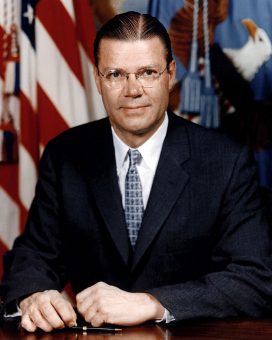Facts about Robert McNamara
Robert S. McNamara Biography
Robert Strange McNamara served as the United States Secretary of Defense under presidents John F. Kennedy and Lyndon B. Johnson (1961-68), overseeing military strategies and policies during the Cold War and the Vietnam War.
A native of San Francisco, Robert McNamara graduated with an economics degree from the University of California at Berkeley in 1937, then from Harvard Business School in 1939. He served in the U.S. Army Air Forces in World War II and rose to the rank of lieutenant colonel, making a name for himself with his statistical studies of bomber performance and logistics.
After the war he went to work with the Ford Motor Company and rapidly rose in the ranks until he was named company president in 1960. Five weeks later he accepted John Kennedy’s offer to serve in the cabinet as the defense secretary.
Robert McNamara restructured the military and moved from a reliance on nuclear weapons to a flexible strategy of conventional and limited wars meant to contain the communist forces of the Soviet Union and China. The escalation of American involvement in Vietnam occupied McNamara’s time and energy throughout his tenure, and McNamara’s businesslike approach and use of non-military analysts rankled Pentagon officials, members of Congress and anti-war protesters.
By 1967, McNamara was openly skeptical that the U.S. could be victorious in Vietnam and resigned to become the president of the World Bank, a post he held from 1968 to 1981. In later years he wrote about his experiences (1995’s In Retrospect: The Tragedy and Lessons of Vietnam) and lectured on contemporary politics. He also became a favorite target of critics of the Vietnam War; the headline of his 2009 obituary in The New York Times called him the “architect of a futile war.”
He was the subject of the Oscar-winning 2003 documentary The Fog of War: Eleven Lessons From the Life of Robert S. McNamara, which was directed by Errol Morris.

